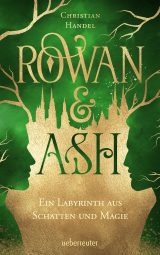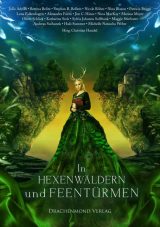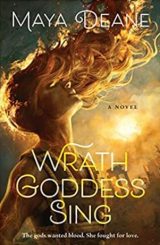Today marks the release of WRATH GODDESS SING, the fantastic debut novel by Maya Deane.
Deane changes our perception of what we believe happened in old times. It’s her true story of Achilles, one of the most fabled warriors of all time – and she’s a remarkable woman.
You read correctly. In WRATH GODDESS SING Achilles is not a man. She is a woman who was born in the body of a man but becomes a woman physically through the power of a goddess. A women who becomes a legend on the battlefield before Troy.
I highly enjoyed this unusual retelling. Deane did a lot of research for this. I talk to her about that, about writing and about her debut in the following interview.
Interview with Maya Deane on WRATH GODDESS SING
To give readers who aren’t familiar with your novel yet a feeling about what awaits them: Which colors and which key words would describe the atmosphere of your novel best?
Red, gold, sun, fire, blood, sweat, bronze, darkness, moon, morning star, apple, horns, hooves, chariot, tooth of the dragon.
What do you like most about your main character?
Achilles? I love her absolute commitment to what she is thinking and feeling, even when she is exploring a contradiction or spiraling up into a rage.
I love her sense of poetry, the aestheticism she brings to the most violent or crude of activities. She’s deeply flawed and conscious of it, and I adore the utter tension between her overflowing love and her violent, selfish rages.
When did you realize that Achilles was a woman?
I always had suspicions.
There’s a riddle — “what was Achilles’ name among the maidens?” — that turns out not to be much of a riddle at all. In fact, the more you look at the Achilles on Skyros mythology, the harder it is to read Achilles as a cisgender man.
The most aggressive attempt to do so is Statius’s Achilleid, which concocts an elaborate forced feminization backstory to explain why Achilles lived for years as a woman on Skyros. In Statius, Thetis forces Achilles to be a woman, so Achilles makes the most of it by raping princesses, which the Romans considered a very virile, manly thing to do — but to me, that kind of grossly transmisogynist story was a sign that the ancients “protested overmuch.”
Are the “kallai” of Skyros based on true history?
(“kallai” is the term the trans women of Skyros use to describe themselves in the novel).
Sort of. Trans women and transfeminine people can be found in every society across history, and the ancient eastern Mediterranean has an unusually good amount of evidence for trans women, especially trans women linked to various sky goddesses like Aphrodite Ouraneia and Inanna/Ishtar and Asherah and Isis and Kybele and so on.
I drew on this larger tradition.
There’s a relative lack of transfeminine people in Greek mythology despite the prevalence of transfeminine people in the larger region in the Bronze Age, and I interpreted that as a sign of an unusually anti-trans-woman society in Achaia, which Meryapi considers uncivilized.
And why was it important to you to transform her physically by Athena in the novel instead of her being “kallai”?
One could view Achilles’ transformation as representing access to the freedom afforded by medical transition and the kind of absolute social acceptance that is kept out of reach for so many — but which really is that powerful and, dare I say, magical.
Ultimately, Achilles is kallai, and the ways kallai are treated still affect her to the end of the story — we see her constantly longing for her sisters, wishing she were not set apart from them; the separation is not because she’s actually fundamentally different from them, but because the other kallai are deprived of the gifts she received, while she is deprived of their community.
We should all have both, but in this world, we are so often divided from each other and deprived of what we need, and this is tragedy.
Unlike in other retellings you changed a lot of familar names for places but also for persons (for example Iphianassa)? Why?
Iphianassa is the version of the character in the Iliad; the better-known Iphigenia is the version in Athenian drama. In the Iliad, Iphianassa is alive and well, and Agamemnon offers her in marriage to Achilles, which would be really weird if she were dead.
More broadly, I was interested in escaping the modern conflations and constructions and going back to the Bronze Age, using Mycenaean name variants where they were available, basing my transliterations on more archaic spellings, and doing everything I could to strip away 2500 years of accretions.
There are a few exceptions, like Achilles herself (whom I could have more accurately rendered anything from Akhillea to Aqirea), because it’s rhetorically important for the reader to imprint on her as the Achilles.
But in general, I wanted people to be able to come to the characters and places as if for the first time. It’s very different to visit bronze age Lazpa than Lesbos, you know? In the former, people can encounter the island as it was in 1225 BCE; in the latter, they’ll be unable to avoid expecting to meet Sappho, who was not born for another 600 years.
On your website you inform us that you retold the Iliad the first time at the age of six. What was the most rewarding thing for you in writing WRATH GODDESS SING?
Telling the stories beneath the story.
The Iliad is usually treated as an ahistorical event that happened in Fantastica (if I can allude to Michael Ende’s work in passing), but it was important to me to set it amid the cosmopolitan interconnected world of the final stage of the Bronze Age that it was actually set in.
How did you realize that you have a talent for writing? Can you remember what your first story (or novel) was about?
My first full-length novel was about a hero who can hit anything with a stick to defeat it, including abstract concepts, and a scheming princess who uses his talent to defeat her idealistic reformer brother and become a corrupt empress.
It was actually pretty good, so I kept writing, took a nearly-decade-long hiatus when I transitioned, and then returned to writing when Aphrodite’s conversation with Achilles appeared fully-formed in my brain in 2018 or early 2019.
What excites you most when you start a new novel?
I love discovering the buried stories underneath the stories we think we know. To me, writing is an act of prophetic revelation, stripping away layers of concealment to reveal the nature of things.
And what do you loathe during the writing process?
I loathe my own limitations most, the fact that I cannot always see to the deepest truth in the first blush of inspiration.
It’s work, excavating the truth buried under three thousand years of powerful myths that served empire after empire. The research involved is enormous.
Most authors are avid readers as well. What kind of books do you like? Which authors can you recommend?
I am always in search of the books that will burn away worlds I thought I knew and leave behind some deeper truth.
Lately I’ve been really enjoying work by Ryka Aoki, Vaishnavi Patel, Alison Rumfitt, Shelley Parker-Chan, Alina Boyden, Tamsyn Muir, Magdalene Visaggio, Gretchen Felker-Martin, and Jeanne Thornton.
I also would always recommend the late, great Tanith Lee, especially her Tales From the Flat Earth and Books of Paradys.
Fun question: If you could invite a few fictional characters over for tea or dinner: Who should it be and why?
I would invite Meryapi, because I know for a fact she’d appreciate the cold hibiscus tea I always have at hand. I would also invite Achilles, because she’d be upset if I didn’t. And I would invite Kiya, because at that point, it would stop being tea and start being some sort of sorcery summit.
Thank you very much!
The novel is available in print, e-book-format and as audio-book, narrated by Katherine Pucciariello.
Further Reading:
WRATH GODDESS SING publisher page
Further interviews: Robin Hobb, Greg Howard, Kendare Blake.


